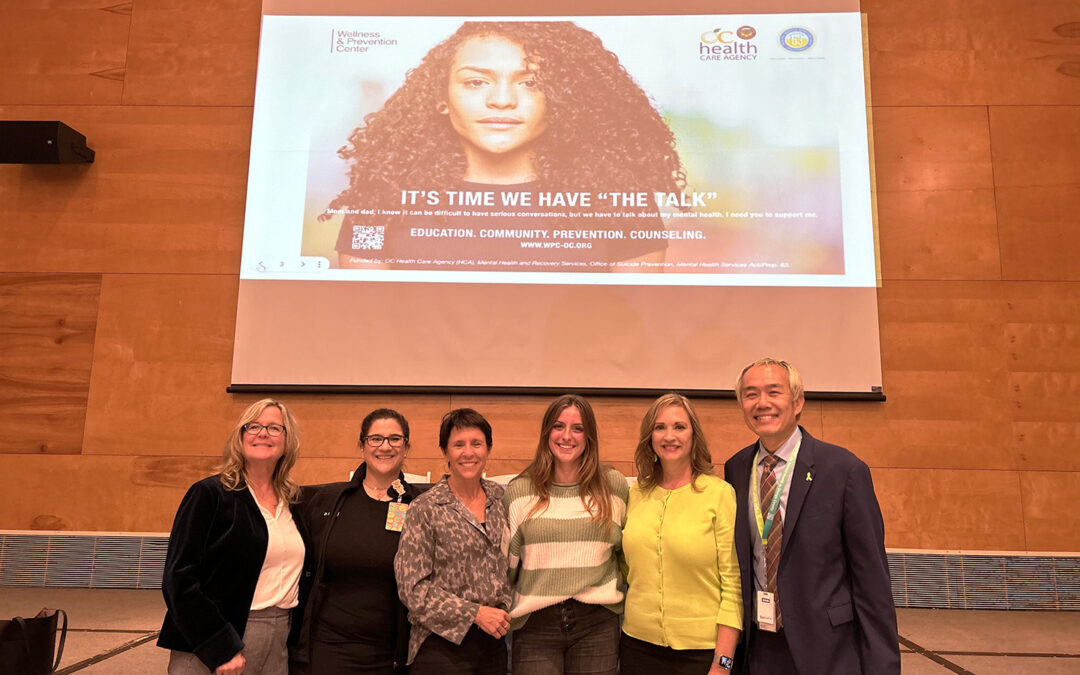In the United States, at least one in five adolescents lives with a mental health condition and less than half receive the support they need. Many young people report that they are afraid to ask for help, their concerns are ignored, or that adults tell them it is “just part of being a teenager”. These reactions show that there is a gap in understanding by adults of the mental health challenges facing young people.
Unfortunately, this gap in understanding and a prevailing culture of silence leads to stigma surrounding mental health symptoms and results in fewer young people getting the help and support they need. This leads to more serious mental health diagnoses, crisis situations, and suicide. The team at the Wellness & Prevention Center aims to help both adults and teens get the support they need to have open and honest discussions about the stressors and very real mental health symptoms they experience.
Talking to teenagers is tough; there are many important topics adults need to discuss with the young people they love. In 2020, the US Surgeon General issued an advisory calling on all of us to protect youth mental health – noting that in 2020, 25% of young people were struggling with symptoms of clinical depression and 20% with symptoms of anxiety. Talking to the young people in your life about their well-being is crucial to keeping them safe and healthy.
Helping the one in five youth and their families learn how to navigate these symptoms of depression and anxiety are key to increasing positive long term outcomes and healthy adulthoods. It is important for youth to have safe places to discuss their questions and concerns about their mental well-being. It is the responsibility of all adults in our community to be prepared to talk about mental health.
Here are some tips for adults about talking with young people:
- Practice talking about mental health with other adults in your life. This helps lower stigma.
- Remain curious and open to queries from youth about mental well-being – listen to their questions and ask them what they think.
- Listen more than you talk.
- Empathize with their feelings and behaviors; do not minimize their emotions or encourage anyone to “move on”.
- Be open to a conversation on the young person’s schedule. Often teens start a conversation when you are not prepared, but try to take advantage of these openings.
Here are some online resources:
Mental Health First Aid – https://www.mentalhealthfirstaid.org/2017/06/5-tips-talking-teenager/ American Academy of Child and Adolescent Psychiatry – https://www.aacap.org/AACAP/Families_and_Youth/Home.aspx?hkey=4e918a42-7a64-4c60-bf12-9c9ef6e48164
Crisis Text Line – 741741
And when any life is at risk, please call 988.
The month of May is Mental Health Awareness Month and there have been activities in many communities that support mental health. The Wellness & Prevention Center and the Ocean Institute held a Mental Health Town Hall and took part in Orange County Community Foundations first annual Mental Health Giving Day on May 17th, Imagining Mental Wellness. Thank you to all who donated to the Wellness & Prevention Center that day or any of the very worthy nonprofits that support the mental wellness of our community!
In case you missed our in person event, you can join us virtually on Monday, June 26th at 6pm to learn more about supporting youth mental health through open conversations. Register here to receive the zoom link.
The Wellness & Prevention Center, www.wpc-oc.org, is here to help as well. Please feel free to reach out with any questions you may have about supporting healthy teens.

